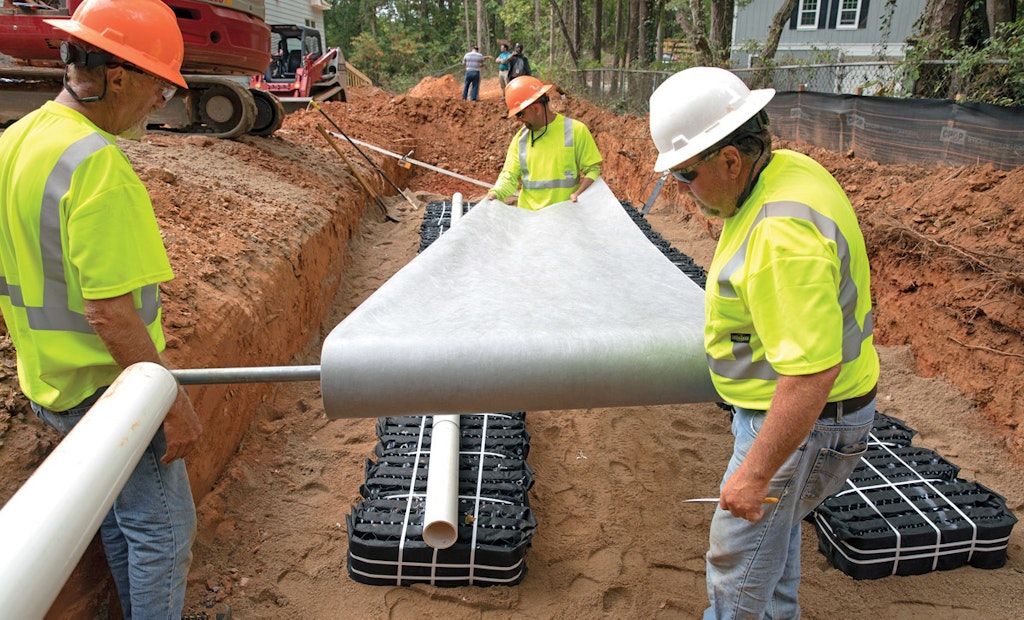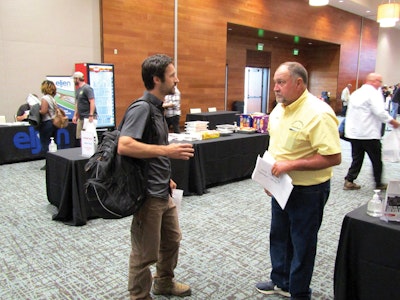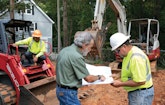
Harold Kilgore, right, and technician David Thompson roll geotextile fabric included in a system using Eljen A42 modules.
Harold Kilgore watched his plans for Gravelator Systems unravel over recent years. The small family-run business in Gainesville, Georgia, opened in 1997 and specialized in designing and installing onsite systems for lots classified as unbuildable.
In late 2018, Kilgore’s...









